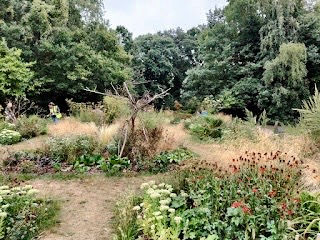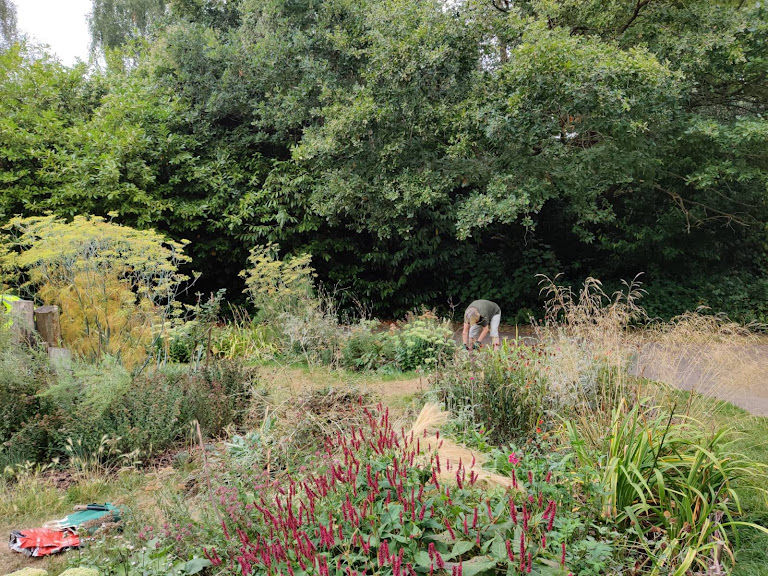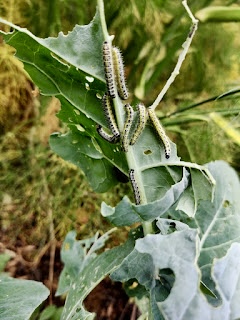Gardening Group
- Friends of Oxleas Woodlands 2
- Aug 16, 2025
- 2 min read
Saturday, 16th August 2025
Jackwood Wildlife Friendly Garden

This morning, six of the gardening group spent a couple of hours in Jackwood Garden. The weather was nice and overcast, much better for working outside than the hot, sunny weather we’ve had lately. It’s been dry overall and, while most of the garden is doing just fine, there are a small number of plants that aren’t yet established enough for this weather. We’ll have to keep on eye on them and maybe look out for a different plant to fill those spots.
Newly flowering this week are the kniphofias, little lemon-yellow bottle brushes, hiding away in the central bed. The larger of our bistorts, bistorta amplexicaulis, has thrown up magenta and red spires, while the smaller one, bistorta affinis, is mostly finished. We should be seeing the anemones flowering now as well, but several of the plants are amongst those suffering in the heat.


Today we were mostly cutting back the remains of the early-flowering stems, where they were blocking growth for the later-flowering plants. We also trimmed back several of our clump-forming plants, particularly the false dittany (ballota pseudodictamnus) and the cotton lavender (santolina chamaecyparissus) along with the herbs in the round bed. As well as cutting back, we did quite a bit of weeding. Our very dense planting means that although we don’t have many weeds, they do hide from us so it can be quite tricky to find them.

Tucked away in the yellow bed, we found something sad. It seems someone has decided to scatter ashes*. We feel torn – what a lovely environment for that - and we are delighted people find the garden significant enough, but it’s not good for the plants or soil invertebrates. Cremation ashes are very high in salts and alkaline minerals, which can destroy soil health, kill young plants and soil invertebrates, and disrupt the balance of fungi and invertebrates that wildlife gardens depend on. They can only be tolerated by established plants in very small doses. They are also not pleasant for us to be working in.
Jackwood Wildlife Friendly Garden

More happily, we spotted that our volunteer brassica plants are doing an excellent job supporting our insect population. We have a cluster of large white butterfly caterpillars (pieris brassicae) eating away at the leaves, and we have cabbage aphids (brevisoryne brassicae) on the underside of the leaves sucking the sap.
Hiding away and getting ready to eat the aphids, we have seven-spot ladybirds.

It’s lovely to see it all working!









Comments